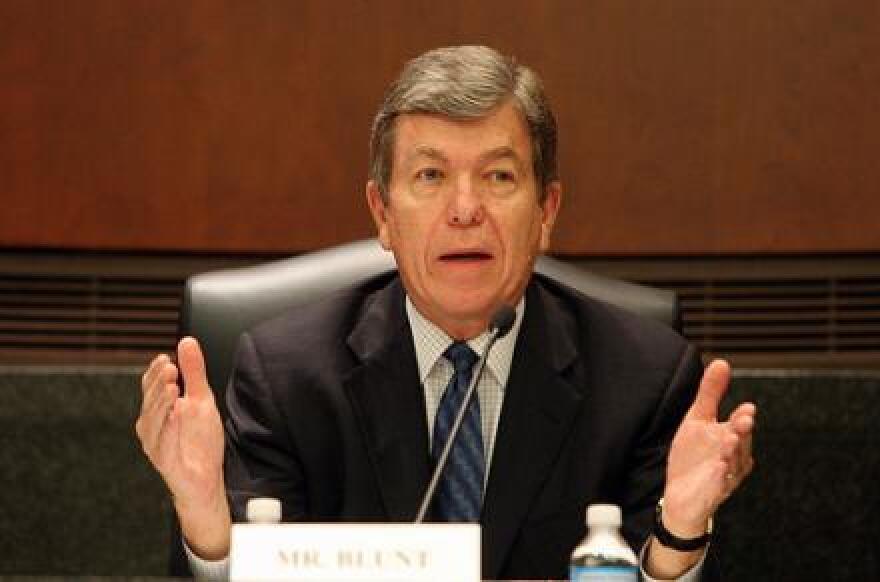The president and his administration are maintaining regular contact with Missouri officials ahead of an announcement by the grand jury investigating the shooting of Michael Brown by Ferguson police officer Darren Wilson.
Claire McCaskill, D-Mo., told reporters this week that she spoke with President Barack Obama on Tuesday for what she described as a “full and complete discussion about a lot of issues surrounding Ferguson.” She added that “I’m in contact with the Department of Justice every few days, encouraging them to continue their independent and complete investigation.”
McCaskill, who said there “isn’t a day that goes by that I don’t worry about Ferguson, and don’t work on Ferguson," has been involved in a series of meetings with community leaders and protesters. She said she plans to conduct more meetings on Friday and Saturday.
“I feels sometimes like I’m engaging in shuttle diplomacy because I’m trying to bring everyone together and hopefully, support law enforcement; make sure we protect property and people; make sure we respect First Amendment rights and the rich tradition of civil disobedience in this country to bring about change, and then, at the end of the day, we’ve got to make sure that we accomplish some reform,” McCaskill said.
Within the past few weeks the president has spoken with Missouri Gov. Jay Nixon, and Attorney General Eric Holder has spoken with several of the state’s elected officials at the local, state and federal levels.
Immigration
In avideo released by the White House, the president said the immigration system is broken, and that he plans to act within what he says is his legal authority to do what Congress has so far failed to do.

Republicans have been warning the president against taking “unilateral” action even with Congress being unable or unwilling to reach a compromise on the divisive issue and they question his authority to do so under the Constitution.
U.S. Sen. Roy Blunt, R-Mo., addressed his concerns in comments on the Senate floor Wednesday, "The Constitution is designed so that when we change law, we do so in a fairly cumbersome way.” He added, “it’s not up to the president to decide that that can be suspended on a topic that he things is important and a topic that he previously said he couldn’t do on his own.”
House Republicans from Missouri echo Blunt’s position, but most Democrats in both the House and Senate see things differently.
U.S. Sen. Dick Durbin, D-Ill., put the blame on House Republicans. “By refusing to take responsibility for fixing our broken immigration system, the House Republicans have left President Obama with no choice. For the good of the American people, the president must use his authority under current law to do what he can to fix our broken immigration system.”
No matter what the president announces tonight, Republicans said they will challenge the limits of his executive authority when they take over both chambers of Congress in January.
Campus Sexual Assault
One issue that won't be taken up in this lame duck session of Congress is McCaskill’s legislation to curb sexual assault on college and university campuses. “I’m confident that we’ll be able to pass it in the new Congress,” said McCaskill in her conference call with reporters.
Earlier this year, McCaskill introduced her measure in a packed news conference with national media. At the time, she was joined by about a dozen Democratic and Republican cosponsors. “Because it has such bipartisan support, there is a sense of assurance on the part of all of us who feel so driven by this issue that it will be fine in the new Congress,” she said.
“There are a lot of things that, because of the calendar and the clock-ticking, must be done in the lame duck. So we get squeezed out in a relatively short period of time by things like funding the government, making sure we get our defense authorization done,” said McCaskill, in explaining why her bill, even with bipartisan support, will not be called for a vote.
Asked whether her vote against U.S. Sen. Harry Reid, D-Nev., for minority leader in the new Congress hurt her bill, she said, “I do not believe so. First of all, I have a lot of co-sponsors on the bill that are Democrats, who are big supporters of Sen. Reid. And he has assured me that there will be no retribution for me honestly telling him in a straightforward way why I could not support him for leader.”





